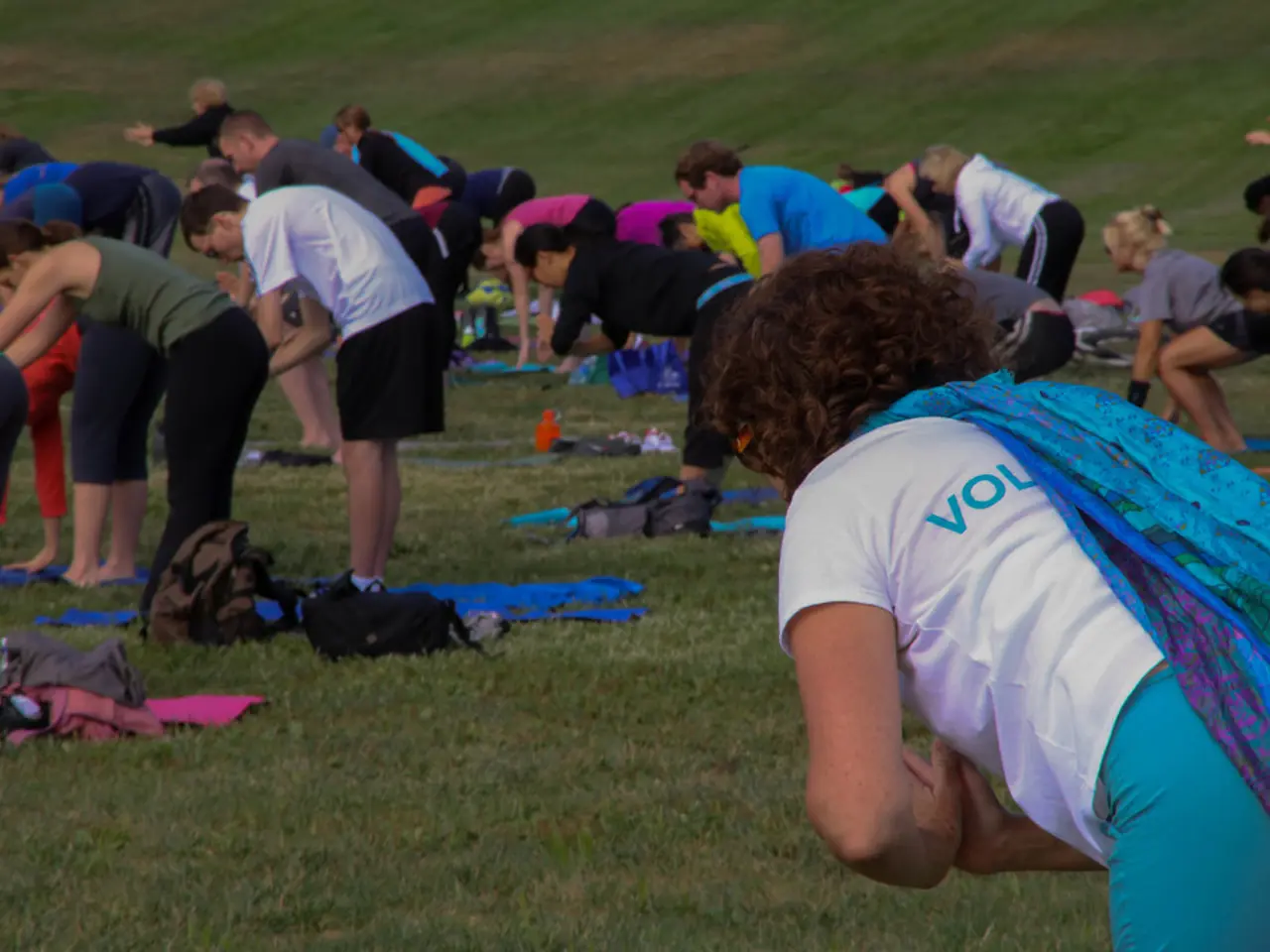Strategies to support psychological well-being; Self-care methods for maintaining mental balance
In the face of overwhelming emotions, grounding techniques offer a valuable resource for individuals seeking to reconnect with the present moment and reduce feelings of dissociation or emotional overwhelm. These strategies are designed to help manage trauma flashbacks, anxiety, and panic attacks by redirecting attention away from distressing thoughts or dissociation onto immediate sensory or cognitive experiences.
The benefits of grounding techniques are numerous. They can reduce feelings of dissociation and emotional overwhelm, decrease heart rate and muscle tension, help manage panic, flashbacks, and anxiety attacks, enhance mental clarity and focus, and empower individuals to self-regulate emotions and reduce reliance on avoidance or numbing behaviors.
Common types of grounding techniques include sensory grounding, containment techniques, cranial nerve stimulation, mindfulness-based grounding, and cognitive/affirmation grounding. Sensory grounding, for example, engages the five senses to bring awareness to the present moment. The 5-4-3-2-1 technique, which uses the five senses, is reportedly helpful for people with bipolar disorder and panic attacks.
To practice grounding techniques effectively, it is recommended to engage in them regularly outside moments of distress to strengthen the skill. When noticing signs of anxiety, panic, or flashbacks, grounding techniques should be used immediately. Combining sensory, cognitive, and calming physical gestures can help tailor what works best for an individual. Engaging in these techniques out loud when possible can increase focus and presence.
It is essential to work with a trauma-informed therapist to develop personalized grounding strategies suited to specific triggers and needs. People who experience trauma from past events may require medical attention and possibly medication. Seeking medical attention for diagnosis is necessary for those who believe they have a mental health condition. Together with a doctor, a person can develop an effective treatment plan.
Grounding techniques can be practiced indoors or outdoors, depending on personal preference. Earthing, a specific grounding technique, involves having physical contact with the ground to bring the body and mind back into contact with the earth. Studies have shown that being physically connected to the earth can deepen sleep, normalize cortisol levels, relax muscles, and boost mood.
In conclusion, grounding techniques provide a powerful means for individuals to interrupt negative mental cycles associated with trauma and anxiety, fostering resilience and increased emotional regulation. By consciously connecting to the present through grounding, individuals can find a sense of calm and safety, enabling them to better navigate life's challenges.
- In the realm of mental health and wellness, grounding techniques can be predictive of reduced feelings of depression and anxiety, allowing individuals to regain composure and manage panic attacks effectively.
- Grounding strategies, such as the 5-4-3-2-1 exercise, are integral components of science-based health-and-wellness routines, offering numerous benefits like lessening emotional overwhelm, anxiety, and panic.
- Therapies-and-treatments focused on mental health often incorporate grounding techniques as a valuable resource; these strategies can empower users to deal with trauma flashbacks while fostering greater self-awareness and self-regulation.
- By utilizing specific grounding techniques like earthing, individuals can reap various health benefits, such as improved sleep quality, lower cortisol levels, reduced muscle tension, and an overall mood boost.
- It is crucial to combine knowledge about grounding techniques with the guidance of mental health professionals like trauma-informed therapists, who can help tailor personalized grounding strategies for managing anxiety and developing effective therapeutic approaches.




